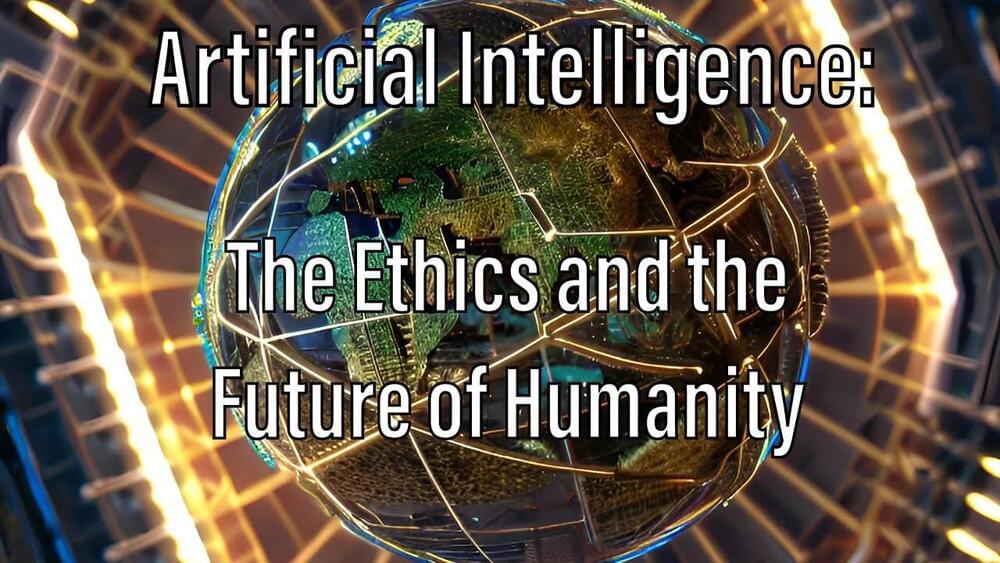Apr 10, 2023
YouTube: Your browser isn’t supported anymore
Posted by Dan Breeden in category: media & arts
Update it to get the best YouTube experience and our latest features. Learn more.

Update it to get the best YouTube experience and our latest features. Learn more.

Disclaimed: None of it is real. It’s just a movie, made mostly with AI, which took care of writing the script, creating the concept art, generating all the voices, and participating in some creative decisions. The AI-generated voices used in this film do not reflect the opinions and thoughts of their original owners. This short film was created as a demonstration to showcase the potential of AI in filmmaking.
#AI #Filmmaking #Aliens #Movies #ScienceFiction #SciFi #Films
Communication without boundaries. “We’re moving sonar onto the body.”
Cornell University researchers have developed a new technology allowing silent communication through sonar glasses. The glasses use tiny microphones and speakers to read the words that are silently mouthed by the wearer, allowing them to perform various tasks without needing physical input. The technology was developed by Ruidong Zhang, a Ph.D. student at Cornell, and builds off of a similar project that used a wireless earbud and previous models that relied on cameras.
Highly-Accurate Design.
Nowhere is the joy of existence so apparent as in music… Intelligent life-forms have created a multitude of sounds that express their exhilaration at being alive.
Artificial intelligence has become the world’s latest buzzword. And experts have been busy demonstrating its capabilities in virtually every field, including music. And it appears that AI did not fare well in the generation of music.
They recruited 50 participants for this study who have a strong understanding of music, particularly musical notes and other essential components.
Puhimec/iStock.
Continue reading “AI-generated music ‘inferior to human-composed’ work, finds study” »
Summary: Researchers explore how sounds and music have the power to soothe, energize, and connect us to one another.
Source: USC
When Ludwig van Beethoven began losing his hearing as a young man in 1,798, he blamed it on a fall, though modern researchers believe illness, lead poisoning or a middle ear deformity could have been factors.
Presented by Madhumita Murgia and John Thornhill, produced by Josh Gabert-Doyon and Edwin Lane. Executive producer is Manuela Saragosa. Sound design by Breen Turner and Samantha Giovinco. Original music by Metaphor Music. The FT’s head of audio is Cheryl Brumley. Special thanks to The Hospital for Sick Children.
We’re keen to hear more from our listeners about this show and want to know what you’d like to hear more of, so we’re running a survey which you can find at ft.com/techtonicsurvey. It takes about 10 minutes to complete and you will be in with a chance to win a pair of Bose QuietComfort earbuds.

Here’s a breakdown of how I used AI to make a video game.
Here’s the game: https://mreflow.com/jump-game/
Continue reading “I Used AI To Make A Game (ZERO Coding Experience)” »

Progress is speeding up even as the world barrels toward one of innumerable disasters. What lies ahead, and what should we do when we get there? In the best-case scenario, we may still have control over our direction.
BECOME A PATRON: https://www.patreon.com/TonyTalksBack
Or, make a one-time donation here: https://paypal.me/TonyTalksBack
Follow on social media for updates on new content and releases:
https://www.facebook.com/TonyTalksBack/
https://twitter.com/TonyTalksBack.
Continue reading “Artificial Intelligence: The Ethics and the Future of Humanity” »

This AI tool automatically animates, lights, and composes CG characters into a live-action scene. No complicated 3D software, no expensive production hardware—all you need is a camera.
Wonder Dynamics: https://wonderdynamics.com.
